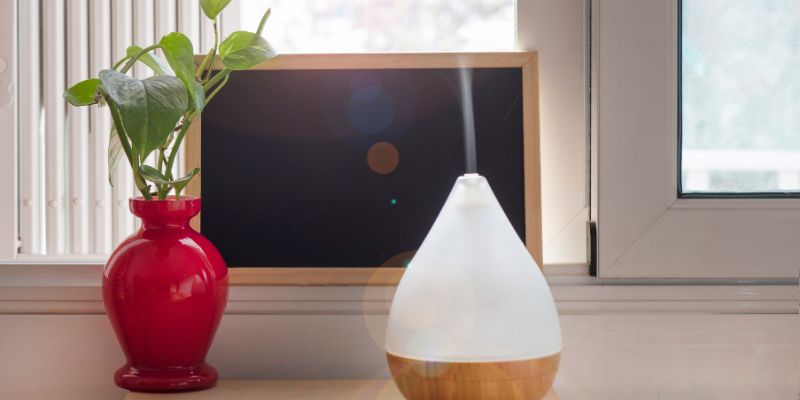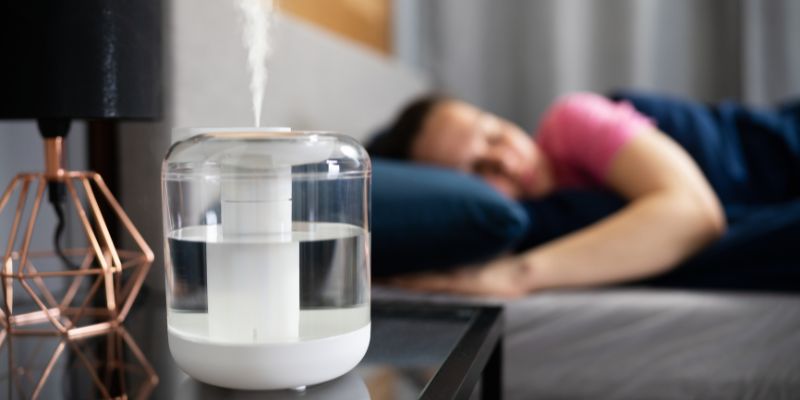Advertisement
Sneezing, coughing, itching eyes, and irritation brought on by allergies create misery. Many people look for efficient alleviation from these annoying conditions. A humidifier would be one easy and natural fix. By raising indoor air moisture, humidifiers facilitate breathing and help to lower irritations linked to dryness. But how could a humidifier possibly assist with allergies? Moist air can help to retain allergens, calm nasal passages, and avoid respiratory trouble.
For those with allergies, particularly in dry seasons, this gadget could be a game-changer. Not all humidifiers are the same, though, so inappropriate use might cause fresh problems such as mold or too high humidity. This article will cover the functioning ideas of humidifiers, their benefits for allergies, and the greatest approaches to making use of in.

By raising atmospheric humidity, humidifiers greatly improve indoor air quality. Dry air can aggravate allergies, including nasal discomfort, itchy skin, and a dry tongue. Adding humidity provides much-needed respite by helping to calm these problems. Moist air helps your nasal passageways remain moist, which traps allergens such as pollen and dust. It stops a lot of allergens from getting into your lungs and aggravating more problems. Particularly helpful in the winter when heating systems dry out interior air are humidifiers.
Low humidity could aggravate your asthma and worsen allergy symptoms. Maintaining an equilibrium of humidity makes living more pleasant. For best effects, experts advise maintaining indoor humidity levels between thirty percent and fifty percent. Over-humidifying, meanwhile, can cause other issues, including mildew and mold growth. These may aggravate your symptoms and develop into allergies themselves. Regular cleanliness of your humidifier and hygrometer monitoring of humidity levels will help to guarantee safety.
Understanding the many kinds and their special qualities will help you to choose a humidifier that best suits your demand.

For those with allergies, humidifiers can offer major relief and improve general comfort. Here are the primary advantages:
Your particular needs and tastes will determine the correct humidifier for you. First, consider the size of the room you will be using. Larger areas might require a central or ultrasonic humidifier for constant, broad coverage. Portable choices like cool mist or evaporative humidifiers are better and more suited for smaller rooms. Look for salient characteristics such as silent operation, easy cleaning, and changeable humidity levels. Choose a silent type if you intend to run the humidifier in an office or bedroom to prevent disturbance.
Another important consideration is energy efficiency, particularly in cases of frequent gadget operation. Spend some time reading product evaluations and contrasting brands to identify one that is dependable and well-rated. Remember also the expenses of changing filters and the maintenance needed to keep the humidifier in good operation. These elements will direct your choice of a humidifier to maximize your comfort and allergy control.
Although a humidifier can be fairly beneficial, several mistakes might aggravate allergy problems instead of providing relief. One common error is humanizing your room too much. Too damp air can cause bacterial growth and mold development that aggravates symptoms and starts allergies. It can be avoided by keeping interior humidity levels between 30 and 50% and by hygrometer-based humidity monitoring. Another mistake is ignoring consistent maintenance.
A badly kept and cleaned humidifier can become a haven for mildew and mold, therefore releasing allergens back into the atmosphere. Always routinely clean the water tank with water recommended by the manufacturer. Also, be sure you change filters and other components as necessary to keep the humidifier operating as it should. Using tap water instead of distilled water aggravates your respiratory system further since it might lead to mineral deposits and airborne white particles. Avoid these mistakes to maximize your humidifier best and enjoy allergy relief.
Humidifiers can offer allergy sufferers much-needed relief by adding moisture to the air. They assist with dry skin, nasal congestion brought on by allergies, and allergy-related breathing trouble. Selecting the correct kind and applying it correctly guarantees the best results and helps to prevent hazards. Safe use depends on regular cleaning and control of humidity levels. Including a humidifier in your allergy control strategy will help you to live in more pleasant surroundings. A humidifier can be a great tool for improved health and comfort, whether allergies season or year-round.
Advertisement

By Elena Davis/Jan 24, 2025

By Pamela Andrew/Dec 03, 2024

By Aldrich Acheson/Mar 17, 2025

By Susan Kelly/Dec 05, 2024

By Martina Wlison/Jan 06, 2025

By Georgia Vincent/Dec 05, 2024

By Juliana Daniel/Mar 16, 2025

By Martina Wlison/Nov 10, 2024

By Christin Shatzman/Dec 13, 2024

By Aldrich Acheson/Dec 05, 2024

By Mason Garvey/Mar 16, 2025

By Juliana Daniel/Jan 21, 2025